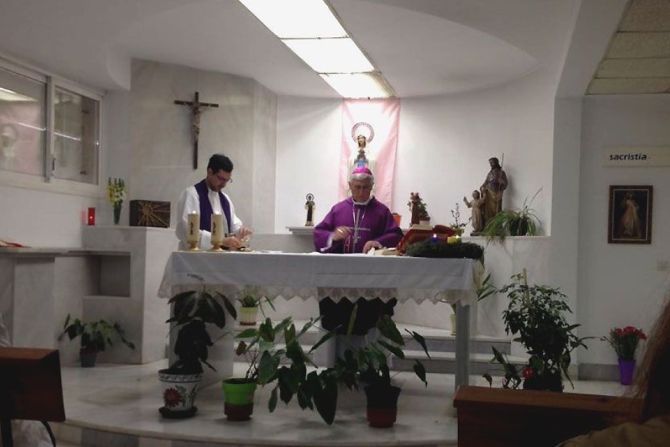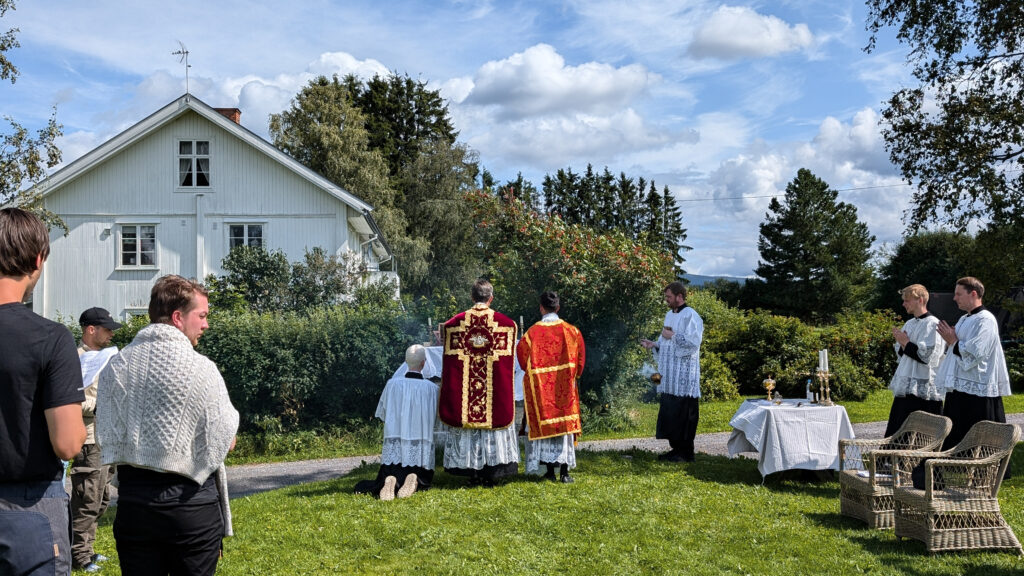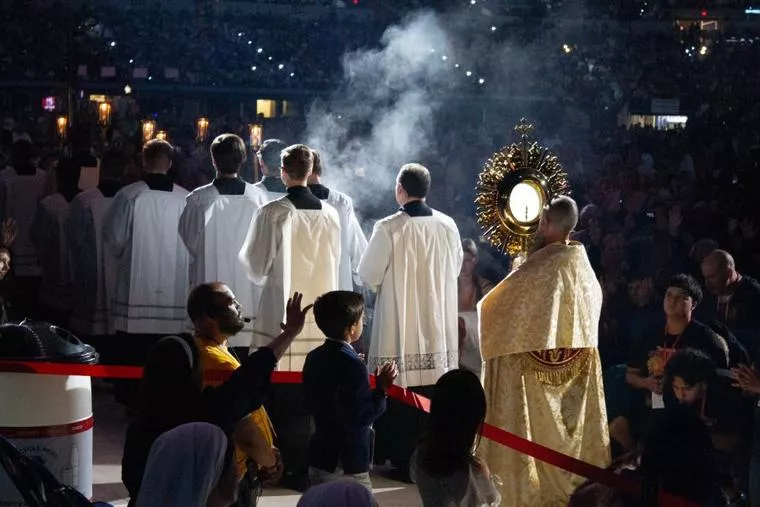ACI Prensa Staff, Sep 14, 2023 / 16:00 pm (CNA).
A hospital chapel in the town of Puerto Real, Spain, located in the Diocese of Cádiz and Ceuta, has recently been desecrated twice, with Masses to be offered in reparation already planned.
Sources at the diocese told ACI Prensa, CNA’s Spanish-language news partner, that the tabernacle had been profaned on at least two different occasions, as witnessed by the chaplains in charge.
The first time, one of the priests discovered that the door of the tabernacle was “out of joint” and repositioned it. Although there was no major damage and neither the sacred vessels nor the consecrated hosts were missing, the priest noticed in a corner “a dirty glass with remains that look like coffee.”
On the second occasion, another chaplain discovered that “the veil of the tabernacle had been torn off,” and although the door was not pried “they took the lid of the ciborium and the pyx with all the consecrated hosts.”
After removing everything from the tabernacle as a precaution, the chaplains reported the desecrations to the hospital management, which referred the incidents to law enforcement.
A Mass in reparation will be offered in the chapel on Sept. 15 as well as on Sept. 18.
Avoiding the danger of desecration
The instruction Redemptionis Sacramentum of the then-Congregation for Divine Worship and the Discipline of the Sacraments explains that the consecrated hosts are principally reserved after Mass so that “the faithful who cannot be present at Mass, above all the sick and those advanced in age, may be united by sacramental Communion to Christ and his sacrifice, which is offered in the Mass.”
This reservation also allows “the practice of adoring this great sacrament and offering it the worship due to God.”
The instruction specifies that “the Most Holy Sacrament is to be reserved in a tabernacle in a part of the church that is noble, prominent, readily visible, and adorned in a dignified manner” and stipulates that “diligent attention should be paid to all the prescriptions of the liturgical books and to the norm of law, especially as regards the avoidance of the danger of profanation” (Nos. 129-130).
“It should also be borne in mind,” the instruction warns, “that removing or retaining the consecrated species for a sacrilegious purpose or casting them away are graviora delicta, the absolution of which is reserved to the Congregation for the Doctrine of the Faith” (No. 132).
This story was first published by ACI Prensa, CNA’s Spanish-language news partner. It has been translated and adapted by CNA.




